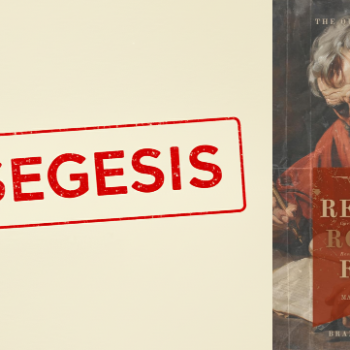Five or six younger men, holding the priesthood office of teacher or deacon, had been sitting in the pews immediately in front of the sacrament table. They stood and were handed the trays containing the pieces of bread. Then they took those trays from row to row in the chapel, supervising the passing of the trays among the members.
As they finished, they gathered in two lines, one on each side of the chapel, and after all were finished, they walked back to the sacrament table and returned their trays to the priests. The priests set the trays back on the table, re-covered them, uncovered trays of small water cups, and kneeled to say the prayer for that part of the ordinance.
We use water rather than wine or grape juice as the token of Christ's blood. Our reasons for doing so are explained in Mormon scripture: Doctrine and Covenants 27:2-4. They amount to "It doesn't matter whether you use bread and wine or some other form of food and drink. The point is to re-enact the covenant of the Last Supper, which is a memorial of Jesus' death for us."
We understand the ordinance of taking the Sacrament to be a covenant with the Father of those who have been baptized, so we don't encourage non-LDS to take it, but neither do we forbid them.
After the rite was finished, Christian stood up again and excused the young men who had been performing it to return to sit with their families, and he announced the rest of the day's worship program. First we would hear from the two young people sitting by me. Then we would hear from the woman of the couple to his right. After that we would sing a hymn. The final speaker would be the husband of the couple.
The topic given each of the speakers was "the importance of the scriptures." All of the speakers gave appropriate talks, and both of the young people (each twelve or thirteen years old) did a particularly impressive job. I was especially impressed by the young man, who suffers from autism. One thing that Mormons learn is to speak before an audience, so after a while I get used to hearing young people speak in church. It becomes normal. But it was still impressive to see this young man stand before a crowd of a one hundred fifty or so people and speak for about eight minutes.
The final speaker finished at approximately five minutes after the hour. We sang the closing hymn and the person designated for the closing prayer gave it. The meeting ended, as scheduled, at ten minutes after twelve.
Congregants talked and visited as they left the chapel on their way to Sunday School and Primary classes. There are classes for all ages from three up, and a nursery for younger children. Janice went to the adult class.
Mormon Sunday School classes vary in content. The adult class goes through a four-year cycle of lessons on the scriptures: Old Testament and Pearl of Great Price, New Testament, Book of Mormon, Doctrine and Covenants. Like almost everything else in the LDS Church, the class is led by a volunteer who usually has little or no background in biblical or scriptural studies. Most of the class is devoted to talking about the scriptures assigned for the week and discussing what spiritual lessons can be learned from them.
There are also classes for those who want to learn about Mormonism and classes on improving one's teaching, on marriage and family relations, on preparing to go to the temple for the first time, and on how to do genealogy.
Primary classes begin with simple lessons, such as the things we can be thankful for, in the three-year-old class, and move to basic beliefs, such as beliefs in Jesus and our Heavenly Father and the necessity of baptism and receiving the Holy Ghost. At the age of eight, classes shift to lessons on scripture, particularly the Book of Mormon.
Teenage classes (part of the Sunday School rather than Primary) begin with more in-depth coverage of basic beliefs. They then move to lessons on scripture that mirror the adult cycle of lessons.
Because I serve on the stake high council, a group of twelve priesthood holders who advise the stake presidency, I have responsibilities to act as a liaison between the stake president and one of the wards. We have two foreign language wards in our stake, one for Spanish speakers and one for Japanese speakers. I'm the liaison with the Japanese ward.





